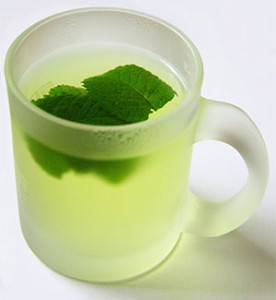 Irritable Bowel Syndrome (IBS) is a common disease suffered by an estimated 25-45 million people in the United States. Symptoms include chronic abdominal pain, bloating, excess gas and irregular bowel movements. Symptoms can be brought on by a number of triggers including anxiety, insomnia and stress. Although there is no known cure to IBS, there are numerous alternative treatments to prescription medication that can help relieve symptoms.
Irritable Bowel Syndrome (IBS) is a common disease suffered by an estimated 25-45 million people in the United States. Symptoms include chronic abdominal pain, bloating, excess gas and irregular bowel movements. Symptoms can be brought on by a number of triggers including anxiety, insomnia and stress. Although there is no known cure to IBS, there are numerous alternative treatments to prescription medication that can help relieve symptoms.
Herbal Therapies
Traditional Chinese Medicine (TCM) uses herbal remedies to treat a number of ailments and diseases including IBS. A differential diagnosis is made based on individual signs and symptoms . Using this information a treatment plan is formulated. Then a individualized formulae can be selected.
Home Therapies
Peppermint has been studied and used to help treat IBS discomfort. Because it is a natural antispasmodic, peppermint can help decrease muscle spasms in the gastrointestinal tract. Common ways to use peppermint include peppermint tea or peppermint oil, both can be found at your local health store and most grocery stores.
Ginger can also be used to help IBS symptoms. Fresh ginger works as an anti-inflammatory and is thought to strengthen the gastric lining and decrease nausea. You can make your own by boiling water with ginger root.
Fennel can immensely help bloating and gas due to IBS. Fennel is considered a carminative, meaning it has properties that prevent the formation of excess gas in the gastrointestinal tract. Fennel can also help heartburn, indigestion and common stomach pain. You can find fennel seeds in your local health food store and can be used to make tea.
Acupuncture
Acupuncture is commonly used to treat chronic abdominal pain, bloating and other IBS symptoms. There has been at least one study done that specifically looked at acupuncture as a treatment for IBS. Acupuncture has been shown to relieve pain and stress, which are common triggers for IBS. This is done by regulating blood flow and Qi (pronounced “chee”) through acupuncture points.
Probiotics
Probiotics are a healthy bacteria that normally live in your gut. It has been thought that those with IBS do not have enough probiotics in their intestinal tract. You can easily add probiotics to your diet by eating foods such as yogurt, saurkraut and kimchee. Kombucha and kefir are drinks that also include probiotics.
Meditation and Exercise
Meditation and exercise are excellent stress relievers and in turn can relieve IBS symptoms that are commonly caused by stress and anxiety.
Not only does exercise release endorphins that help fight stress, but regular physical activity can help regulate your gastrointestinal system.
Research done at the University of North Carolina at Chapel Hill on meditation and IBS found that women who practiced mediation had around a 38 percent reduction in symptoms, according to U.S. News.
Meditation focuses on deep breathing and staying in the moment to relax the mind and body.
Alternative medicine including TCM and acupuncture can largely decrease your IBS symptoms and help you live a more pain-free life!
Sources:
http://www.helpforibs.com/footer/acupunct.asp#studies
http://www.aboutibs.org/site/treatment/complementary-or-alternative-treatments/

